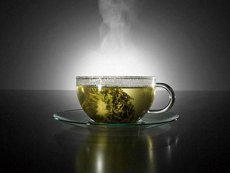New publications
Green tea is fuel for the brain
Last reviewed: 01.07.2025

All iLive content is medically reviewed or fact checked to ensure as much factual accuracy as possible.
We have strict sourcing guidelines and only link to reputable media sites, academic research institutions and, whenever possible, medically peer reviewed studies. Note that the numbers in parentheses ([1], [2], etc.) are clickable links to these studies.
If you feel that any of our content is inaccurate, out-of-date, or otherwise questionable, please select it and press Ctrl + Enter.

Green tea has long been considered to improve memory. Now scientists have managed to find out how the chemical properties of the national Chinese drink stimulate the production of brain cells and thus improve memory and spatial thinking.
"Green tea is popular all over the world," says Professor Yun Bai of the Third University of Military Medicine in Chongqing, China. "There have been many scientific studies looking at the ability of green tea to prevent cardiovascular disease, and now there is emerging evidence that the chemical properties of the drink can influence cellular mechanisms in the brain."
Professor Bai and his colleagues focused on the organic chemical compound epigallocatechin gallate, which is abundant in green tea. Epigallocatechin gallate is a well-known antioxidant, but the researchers also found that this type of catechin may help fight age-related degenerative diseases.
"We hypothesized that EGCG benefits human cognitive function by stimulating the production of neuron cells, a process known as neurogenesis," explains Professor Bai. "We focused on the hippocampus, the part of the brain that mediates between short-term and long-term memory."
The scientists' assumptions were correct. The researchers found that EGCG increased the production of neuronal precursor cells. The scientists then used experimental mice to find out whether this process in the brain affected memory and spatial thinking.
"We tested two groups of mice, one of which was exposed to EGCG," Bai said. "First, the mice were trained for three days to find a visible object in a maze. Then they were trained for seven days to find a hidden object."
It turned out that mice that received a dose of epigallocatechin gallate were faster at finding the hidden object compared to their “normal” counterparts.
"We have shown that the organic chemical compound epigallocatechin gallate directly affects the increase in the production of neuronal progenitor cells," Bai concluded. "This will help us understand the potential of this catechin, as well as green tea, which contains it, in terms of preventing memory impairment and the development of degenerative age-related diseases."
 [ 1 ]
[ 1 ]
